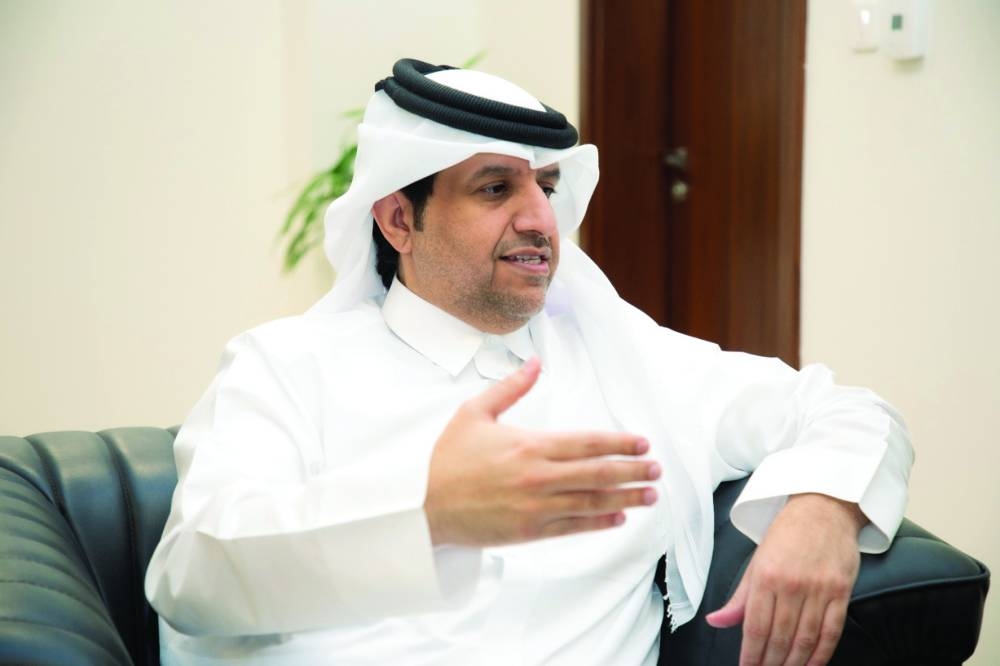Vice-President of the Community College of Qatar (CCQ) for student affairs, Ali al-Buainain, has affirmed that the college is fully prepared to receive over 8,900 students from both genders for new academic year 2024-2025, which is set to start on Sunday, Aug 25.
Speaking to Qatar News Agency (QNA), al-Buainain emphasised that over 900 male and female students will enroll into the foundation level for the Fall 2024 semester, with a 43% increase compared to 2023. Additionally, more than 1,000 students have been enrolled into a variety of professional programmes for 2024 Fall semester. He noted that the total number of students in the college's seats reaches 8,955.
Al-Buainain said this number echoes the ongoing prosperity and growth the college has witnessed since its inception, through offering an incredible academic opportunity a wide diversity of educational tracks that serve the community segments, thus bolstering its critical role and privileged standing, as one of the primary educational hubs that contributes to advancing higher education in Qatar.
He added that such a constant progress prompts CCQ to boast of granting over 7,000 scientific certificates that vary between associate diploma certificates and bachelor's degrees, for more than 5,300 graduates, in addition to preparing of over 3,260 students to proceed with their college studies at other educational institutions, with Qatar University being at the vanguard.
Al-Buainain highlighted that the new academic year is set to receive a new cohort of students as part of the associate diploma in customs management in co-ordination with the General Authority of Customs, in addition to rolling out the diploma in early childhood education program for more than 100 female students starting from the Fall 2024, in collaboration with the Ministry of Education and Higher Education (MoEHE).
He asserted that CCQ embarks upon launching new programs in the years ahead, in accordance with the college's strategic plan 2023-2030, which comprises 22 initiatives, within five strategic goals for all sectors, adding that the college is highly committed to meeting the occupational and academic ambitions of targeted students through this strategy, in addition to bolstering their privilege and role in development plans within their work institutions.
The vice-president emphasised that over a decade the college has incredibly succeeded in expanding its academic partnership with local, regional and global universities and educational institutions, a partnership that has profoundly qualified the college to be an effective contributor to achieving the sustainable development based on Qatar National Vision 2030.
With respect to majors CCQ offers, al-Buainain said, this year, the college presents 18 academic programmes that range between the associate programme and bachelors degree through three academic sectors, chiefly the sectors of science and technology, literature and arts, administrative sciences, along with the foundational programme.
He said that students are qualified accordingly for the scientific majors, noting the calibration method the college pursues in distributing students to the available majors, based on numerous considerations, foremost of which are the desire of students themselves and fulfilling the conditions of each major, as well as the nominations employers submit within the professional academic programs.
To that end, he said, CCQ's student affairs sector is committed to holding orientation meetings for the new students of the Fall 2024-2025, which aim to introduce them to the academic programs available, methods of adding and deleting the academic curricula, in addition to familiarising them with the college facilities, student service utilities and following up on academic plans for each programme.
Al-Buainain touched on the significant milestones the college had achieved, foremost of which were the launch of the second phase of the academic competencies initiative 2024-2025, in partnership with MoEHE, and Civil Services and Government Development Bureau, to accelerate the process of drawing national qualified competencies of those holding advanced academic degrees, chiefly master's and PhD degrees.
He elucidated that based on the program's mechanism, accepted students enroll into CCQ as teaching staff who are subsequently assigned with teaching functions to simultaneously help them proceed with their higher education during this mission, if deemed necessary, highlighting several CCQ projects that foster its vital role in providing educational service, as per local and international accreditation standards through self-review and constant development of academic programmes, based on applied education, alongside focusing on the learner and student.
Al-Buainain confirmed that the college has worked on updated policies and procedures for student affairs, in accordance with the new strategic plan, highlighting that the most salient achievements of this policy, was the preparation of student electronic payment system, in addition to activating occupational service at the college to serve students and help them opt for the academic programs that best suit their proclivities and ambitions, as well as the need of labour market.
In addition, al-Buainain said that the college has been keen to advance the foundational scholarship activities, fostering partnerships, optimising recruitment services for students, providing supportive student services, both academic and extracurricular, to promote student life at the university, in addition to fostering the role of student clubs through a new mechanism, and preparing a student activities guide.

Ali al-Buainain
